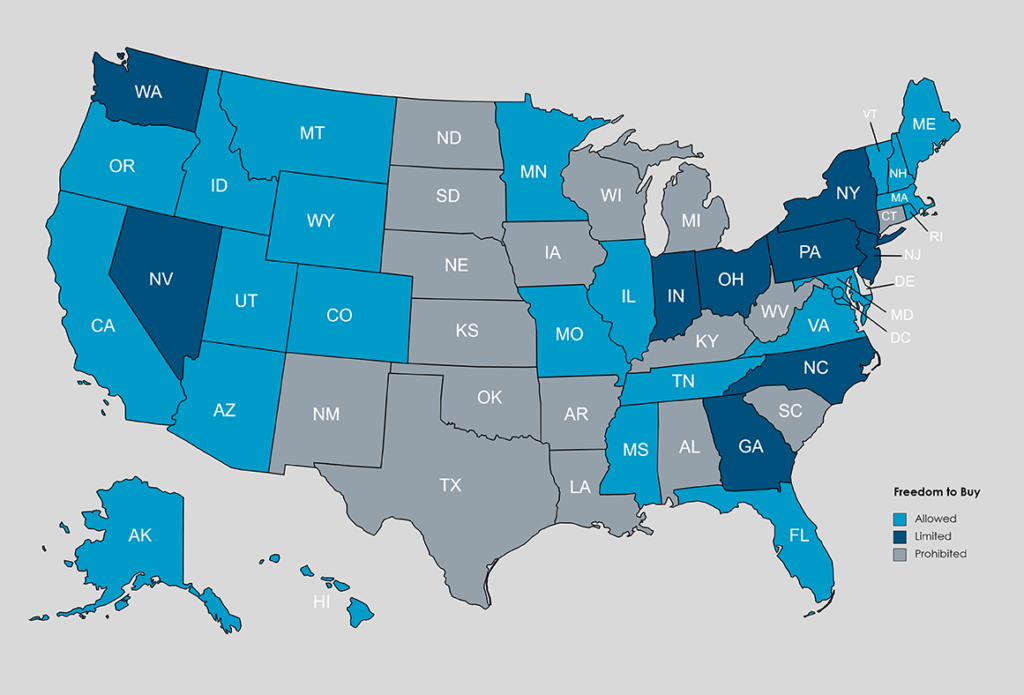Many states already allow EV manufacturers to sell directly to consumers and businesses: Arizona, California, Colorado, Delaware, Florida, Idaho, Illinois, Maine, Maryland, Massachusetts, Minnesota, Mississippi, Missouri, New Hampshire, Oregon, Rhode Island, Tennessee, Utah, Vermont and Wyoming. Some states currently have agreements with one EV manufacturer (denoted in the map below as “limited access”)

Get in-depth information about the freedom to buy in Georgia and North Carolina.
The freedom to buy has been a strong indicator of EV sales. In 2020, America’s approximately 17,000 dealerships sold 45,000 EVs, or less than three EVs per dealership. Compounding the low average number of EVs sold, over 70% of dealerships did not have an EV on their lot for sale, according to a 2019 study. If transportation electrification goals are to be reached, then giving consumers the freedom to buy from multiple sales channels is a critical part of that mission. Even states with a demonstrated commitment to electrification can be hamstrung by sales restrictions. Despite New York and Florida having similar populations and despite the former being a ZEV state, Florida sold 80% more EVs than New York in 2020 because it allows customers the freedom to buy.
Amy Malaki is the Director of Partnerships and Policy at SkyNRG and SkyNRG Americas, pioneering global leaders in sustainable aviation fuel production and supply. Prior to SkyNRG, Amy was the Associate Director for the transportation portfolio at the ClimateWorks Foundation where she developed philanthropic investment strategies to advance a sustainable, equitable and low-carbon mobility system. She also pioneered the organization’s international aviation decarbonization strategy. Prior to that she focused on Asia business development at Better Place, a Silicon Valley electric vehicle network startup. She has a B.A. in Chinese and China studies from the University of Washington and an M.A. in international policy studies (energy and environment) from Stanford University.